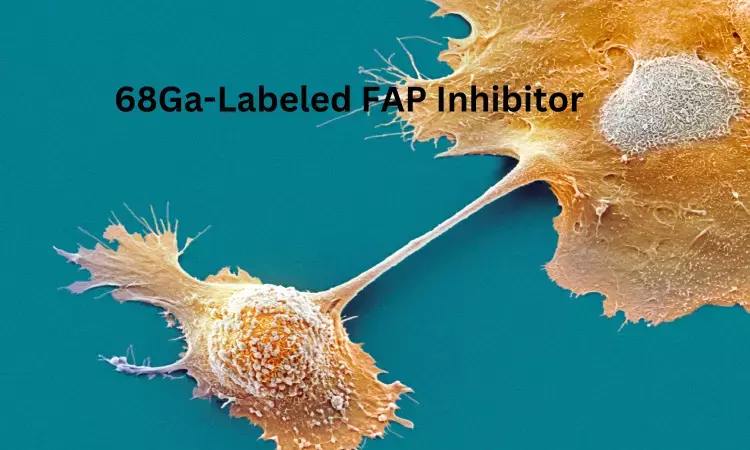- Home
- Medical news & Guidelines
- Anesthesiology
- Cardiology and CTVS
- Critical Care
- Dentistry
- Dermatology
- Diabetes and Endocrinology
- ENT
- Gastroenterology
- Medicine
- Nephrology
- Neurology
- Obstretics-Gynaecology
- Oncology
- Ophthalmology
- Orthopaedics
- Pediatrics-Neonatology
- Psychiatry
- Pulmonology
- Radiology
- Surgery
- Urology
- Laboratory Medicine
- Diet
- Nursing
- Paramedical
- Physiotherapy
- Health news
- Fact Check
- Bone Health Fact Check
- Brain Health Fact Check
- Cancer Related Fact Check
- Child Care Fact Check
- Dental and oral health fact check
- Diabetes and metabolic health fact check
- Diet and Nutrition Fact Check
- Eye and ENT Care Fact Check
- Fitness fact check
- Gut health fact check
- Heart health fact check
- Kidney health fact check
- Medical education fact check
- Men's health fact check
- Respiratory fact check
- Skin and hair care fact check
- Vaccine and Immunization fact check
- Women's health fact check
- AYUSH
- State News
- Andaman and Nicobar Islands
- Andhra Pradesh
- Arunachal Pradesh
- Assam
- Bihar
- Chandigarh
- Chattisgarh
- Dadra and Nagar Haveli
- Daman and Diu
- Delhi
- Goa
- Gujarat
- Haryana
- Himachal Pradesh
- Jammu & Kashmir
- Jharkhand
- Karnataka
- Kerala
- Ladakh
- Lakshadweep
- Madhya Pradesh
- Maharashtra
- Manipur
- Meghalaya
- Mizoram
- Nagaland
- Odisha
- Puducherry
- Punjab
- Rajasthan
- Sikkim
- Tamil Nadu
- Telangana
- Tripura
- Uttar Pradesh
- Uttrakhand
- West Bengal
- Medical Education
- Industry
FAPI-PET imaging better diagnostic option for Pancreatic Adenocarcinoma

Pancreatic ductal adenocarcinoma (PDAC) is a deadly cancer with extremely poor survival rates. It is well known that because of late detection, PDAC is often diagnosed in advanced or metastasized stages, which emphasizes the necessity of accurate imaging methods for suspected lesions.
The fibroblast activation protein (FAP) is highly expressed on carcinoma-associated fibroblasts in the stroma of pancreatic cancer and thus is promising target for imaging and therapy. Preliminary data on PET imaging with radiolabeled FAP inhibitors (FAPIs) demonstrate superior tumor detection.
A recent study in The Journal of Nuclear Medicine assessed the accuracy of FAP-directed PET in patients with pancreatic cancer. The study confirmed an association of 68Ga-FAPI PET SUV max and histopathologic FAP expression in pancreatic cancer patients. Additionally, there was high detection rate and diagnostic accuracy, superior to those of 18F-FDG PET/CT. 68Ga-FAPI might become a powerful diagnostic tool for pancreatic cancer work-up.
The researchers included 64 patients with suspected or proven pancreatic cancer, 62 (97%) were included in the data analysis of the 68Ga-FAPI PET observational trial. All of these patients underwent contrast-enhanced CT, and 38 patients additionally underwent 18F-FDG PET. The primary study endpoint was the association of 68Ga-FAPI PET uptake intensity and histopathologic FAP expression. Secondary endpoints were detection rate, diagnostic performance, interreader reproducibility, and change in management. Datasets were interpreted by 2 masked readers.
The key points of the study are
• The primary endpoint was met: The association between 68Ga-FAPI SUVmax and histopathologic FAP expression was significant (Spearman r, 0.48; P = 0.04).
• For histopathology-validated lesions, 68Ga-FAPI PET showed high sensitivity and positive predictive values (PPVs) on per-patient (sensitivity, 100%; PPV, 96.3%) and per-region (sensitivity, 100%; PPV, 97.0%) bases.
• In a head-to-head comparison versus 18F-FDG or contrast-enhanced CT, 68Ga-FAPI detected more tumor on a per-lesion (84.7% vs. 46.5% vs. 52.9%), per-patient (97.4% vs. 73.7% vs. 92.1%), or per-region (32.6% vs. 18.8% vs. 23.7%) basis, respectively.
• 68Ga-FAPI PET readers showed substantial overall agreement on the basis of the Fleiss κ: primary κ, 0.77 (range, 0.66–0.88).
• Minor and major changes in clinical management occurred in 5 patients (8.4%) after 68Ga-FAPI PET.
Researchers concluded that “We confirmed an association of 68Ga-FAPI PET SUV max and histopathologic FAP expression in pancreatic cancer patients. Additionally, we found high detection rate and diagnostic accuracy, superior to those of 18F-FDG PET/CT. 68Ga-FAPI might become a powerful diagnostic tool for pancreatic cancer work-up.”
Reference: Lukas Kessler Nader Hirmas, KimM.Pabst et al; 68Ga-Labeled Fibroblast Activation Protein Inhibitor (68Ga-FAPI)PET for Pancreatic Adenocarcinoma: Data from the 68Ga-FAPIPET Observational Trial; Journal of Nuclear Medicine, published on November 16, 2023 as doi:10.2967/jnumed.122.264827
MSc. Neuroscience
Niveditha Subramani a MSc. Neuroscience (Faculty of Medicine) graduate from University of Madras, Chennai. Ambitious in Neuro research having worked in motor diseases and neuron apoptosis is interested in more of new upcoming research and their advancement in field of medicine. She has an engrossed skill towards writing and her roles at Medical dialogue include Sr. Content writer. Her news covers new discoveries and updates in field of medicine. She can be reached at editorial@medicaldialogues.in
Dr Kamal Kant Kohli-MBBS, DTCD- a chest specialist with more than 30 years of practice and a flair for writing clinical articles, Dr Kamal Kant Kohli joined Medical Dialogues as a Chief Editor of Medical News. Besides writing articles, as an editor, he proofreads and verifies all the medical content published on Medical Dialogues including those coming from journals, studies,medical conferences,guidelines etc. Email: drkohli@medicaldialogues.in. Contact no. 011-43720751


